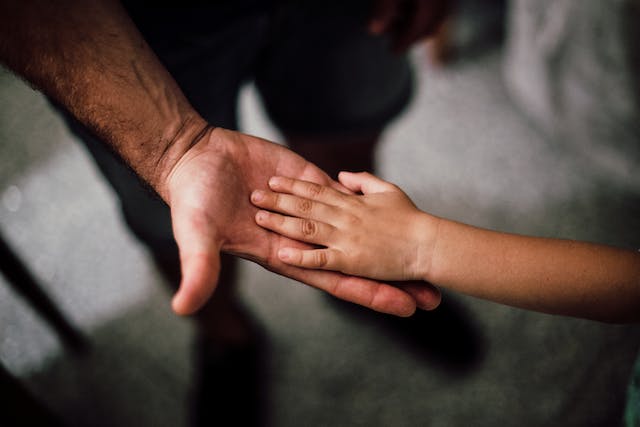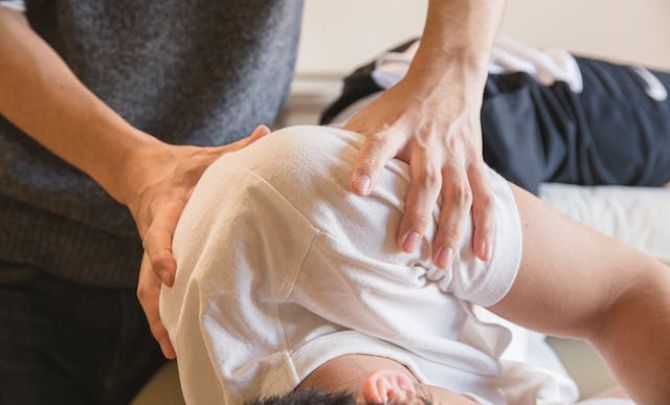A car crash can quickly destroy the peace of daily life and leave a wake of psychological and physical suffering. After an occurrence like this, the effects are typically far-reaching and need a thorough approach to healing. After a car accident, the road to recovery is paved with obstacles, but with the correct attitude and well-planned lifestyle adjustments, one can restore not only their physical health but also their general well-being.
Understanding the Impact on Physical Health
The immediate aftermath of a car crash can leave victims grappling with a myriad of physical injuries. From whiplash and fractures to more severe conditions, the toll on the body can be extensive. Seeking prompt medical attention is crucial to address these injuries and lay the foundation for recovery. A healthcare professional, such as a physiotherapist or orthopedic specialist, can guide individuals through tailored rehabilitation programs aimed at restoring strength, flexibility, and overall physical function.
Embracing Holistic Healing Modalities
After an automobile accident, adopting holistic treatment approaches is a game-changing step toward full recovery. Holistic approaches acknowledge the connection between the mind, body, and spirit and go beyond the boundaries of traditional medicine. A holistic synergy that goes beyond simple symptom treatment is provided by therapies like acupuncture, which focuses on restoring energy balance, massage therapy, which relieves physical tension, and chiropractic care, which addresses musculoskeletal alignment. These techniques address the emotional and mental damage that is frequently disregarded following an automobile accident in addition to the physical damage. By fostering a balance between the physical, emotional, and spiritual aspects of an individual, holistic healing modalities offer a more profound and integrated path to wellness, aiding in the restoration of both physical vitality and emotional resilience.
Prioritizing Mental Health in the Aftermath
The emotional turbulence, anxiety, and potential onset of post-traumatic stress disorder (PTSD) can significantly impede the overall healing process. Prioritizing mental health becomes an integral aspect of recovery, necessitating a deliberate focus on psychological well-being. Seeking support from mental health professionals, such as therapists or counselors, provides a crucial outlet for individuals to express and process their emotions. Additionally, engaging in therapeutic practices like mindfulness meditation or journaling can empower survivors to navigate the complex landscape of their thoughts and emotions. Building a robust support system of friends and family further strengthens the foundation for mental resilience, creating a safe space where individuals can share their experiences and receive the understanding they need. Acknowledging and addressing mental health in the aftermath of a car crash is not merely a choice but a necessity for comprehensive healing.
Legal Guidance: The Role of a Car Accident Lawyer
Amidst the physical and emotional turmoil, the importance of legal support cannot be overstated. A car accident lawyer becomes a crucial ally in navigating the complex legal landscape associated with personal injury claims. From gathering evidence to negotiating with insurance companies, their expertise ensures that victims receive fair compensation for medical expenses, lost wages, and emotional suffering. It’s essential to consult with a car accident lawyer early in the process to safeguard one’s rights and streamline legal proceedings. Car accident lawyers specialize in advocating for the rights of those who have suffered harm due to the negligence of others. Their in-depth knowledge of personal injury laws, insurance policies, and courtroom procedures equips them to build a strong case on behalf of their clients. By entrusting the legal aspects of a car crash to a skilled professional, victims can focus on their recovery, knowing that their rights are being diligently protected.
Implementing Lifestyle Changes for Long-Term Wellness
Beyond the immediate focus on physical rehabilitation, adopting sustainable habits ensures a resilient and thriving future. A nutritious diet tailored to support the body’s healing process becomes a cornerstone, providing essential nutrients for tissue repair and overall well-being. Regular exercise, tailored to individual capabilities, aids in rebuilding strength and flexibility, preventing the onset of secondary health issues. Equally important is the integration of stress-management techniques, such as mindfulness and relaxation exercises, to address the emotional aftermath of the incident. These lifestyle adjustments not only contribute to physical recovery but also serve as a proactive measure against potential long-term complications. By prioritizing holistic well-being and embracing positive lifestyle changes, individuals post-car crash empower themselves not just for recovery but for a sustained and vibrant quality of life.
Building Resilience Through Rehabilitation
Building resilience through rehabilitation is a cornerstone of the recovery process after a car crash. Rehabilitation extends far beyond the physical aspects of healing; it encompasses a holistic approach to rebuilding one’s life and mental well-being. During rehabilitation, individuals not only regain physical strength and functionality through therapies but also learn coping mechanisms to navigate the emotional challenges that often accompany recovery. Occupational therapy plays a crucial role in helping individuals regain independence in daily activities, addressing any barriers that may hinder their ability to lead a fulfilling life. Additionally, vocational rehabilitation assists those facing challenges in returning to work, ensuring a smooth transition and fostering a sense of purpose. By focusing on comprehensive rehabilitation, survivors not only recover from the immediate impacts of the crash but also develop the resilience needed to embrace the future with strength and determination.
Fostering a Supportive Community

This community extends beyond mere camaraderie; it serves as a cornerstone for emotional healing and understanding. Whether it’s family, friends, or a network of fellow survivors, having a community to lean on can provide a sense of belonging and empathy. In shared experiences, there lies an unspoken language that transcends words, offering solace and encouragement. Support groups, both online and in-person, create spaces where individuals can openly discuss their challenges, triumphs, and fears, forging connections that are instrumental in the healing process. Through these connections, survivors not only find solidarity but also gain valuable insights and coping strategies from others who have walked a similar path. In essence, the support of a community becomes a source of strength, reinforcing the resilience needed to navigate the intricate journey toward wellness.
The road to recovery from an automobile accident is complex and requires consideration of one’s physical as well as mental health. Every stage is vital to the healing process, from getting emergency medical attention to getting legal counsel from a car accident attorney. Rebuilding a fulfilling life after the crash requires embracing holistic healing approaches, making lasting lifestyle changes, and cultivating a supportive network. As survivors navigate this challenging journey, they can find strength not only in their resilience but also in the collective support of those around them.
